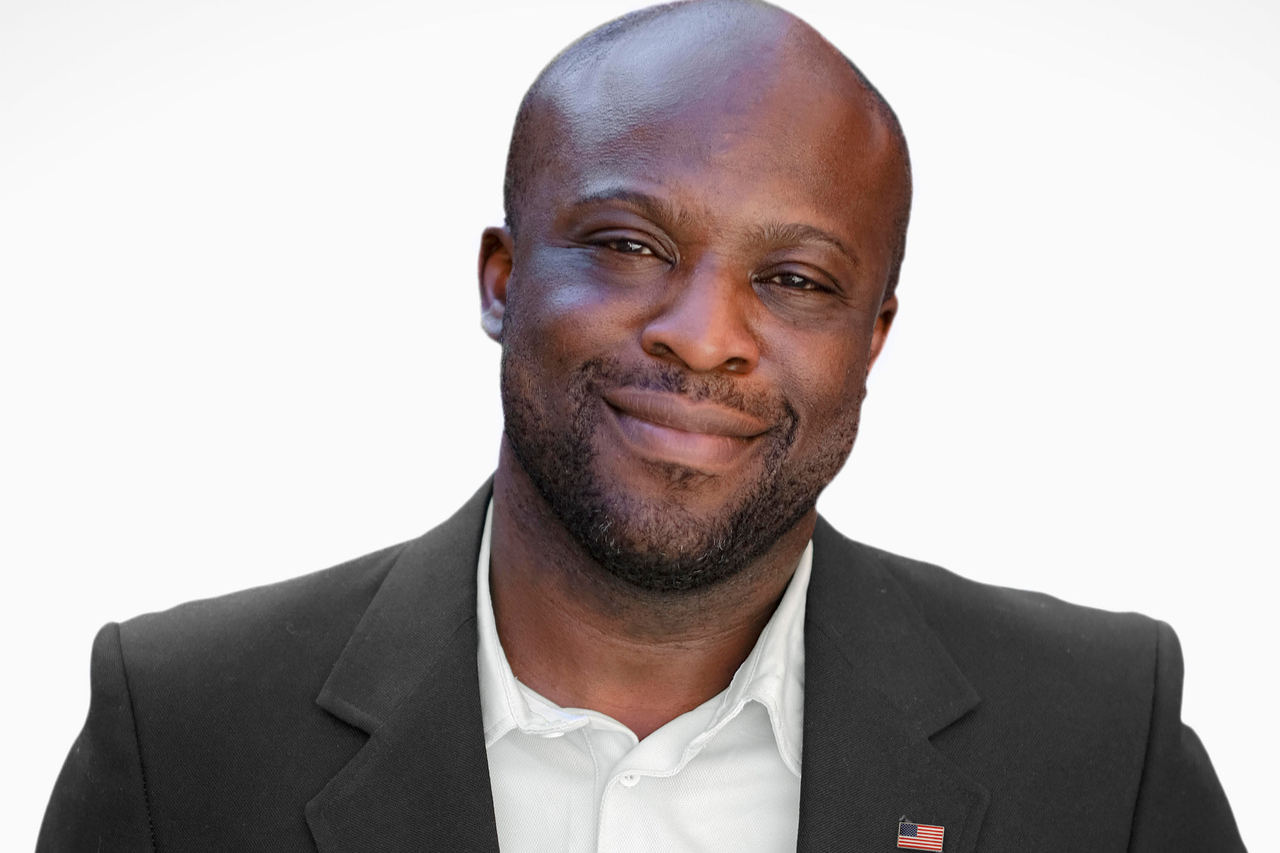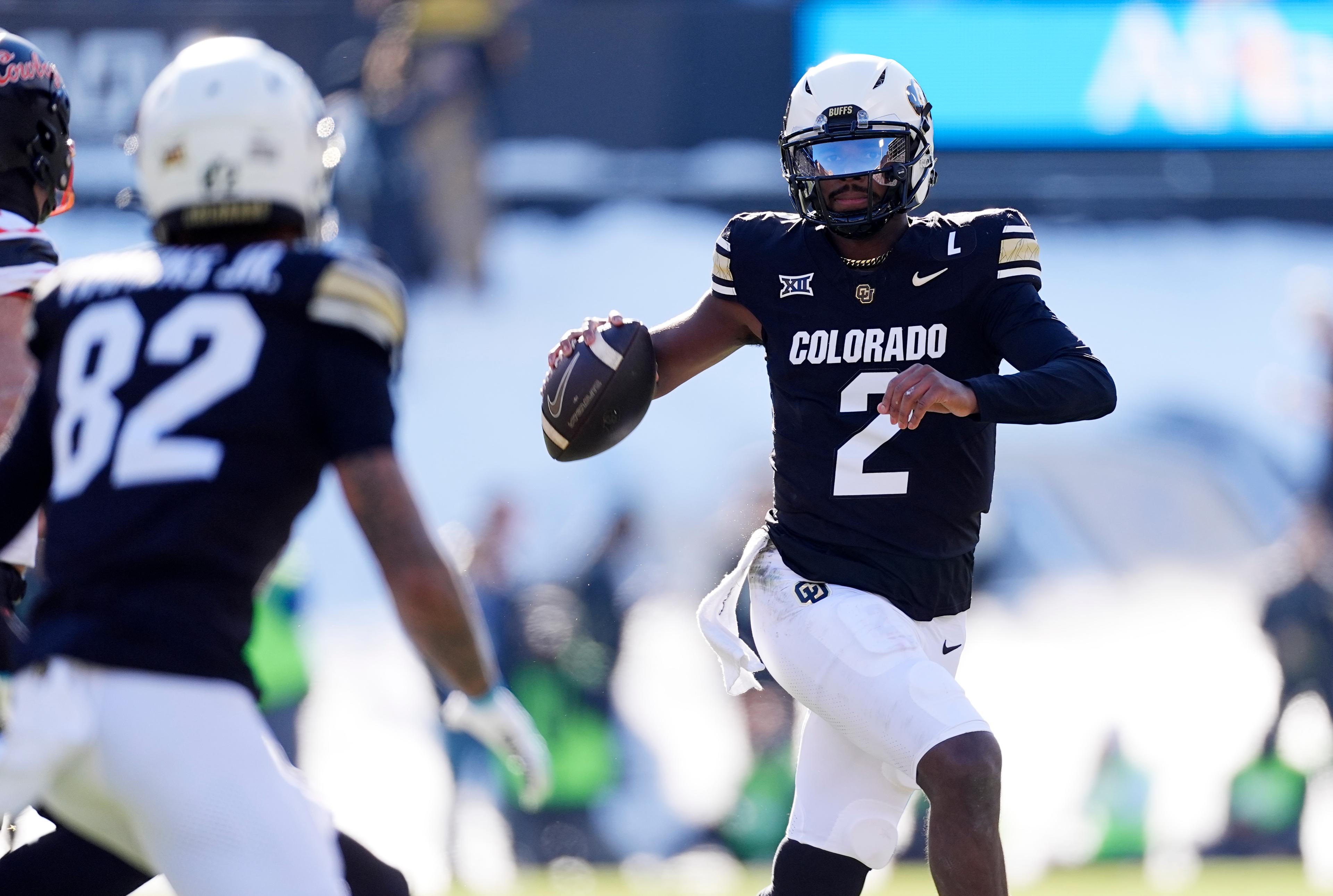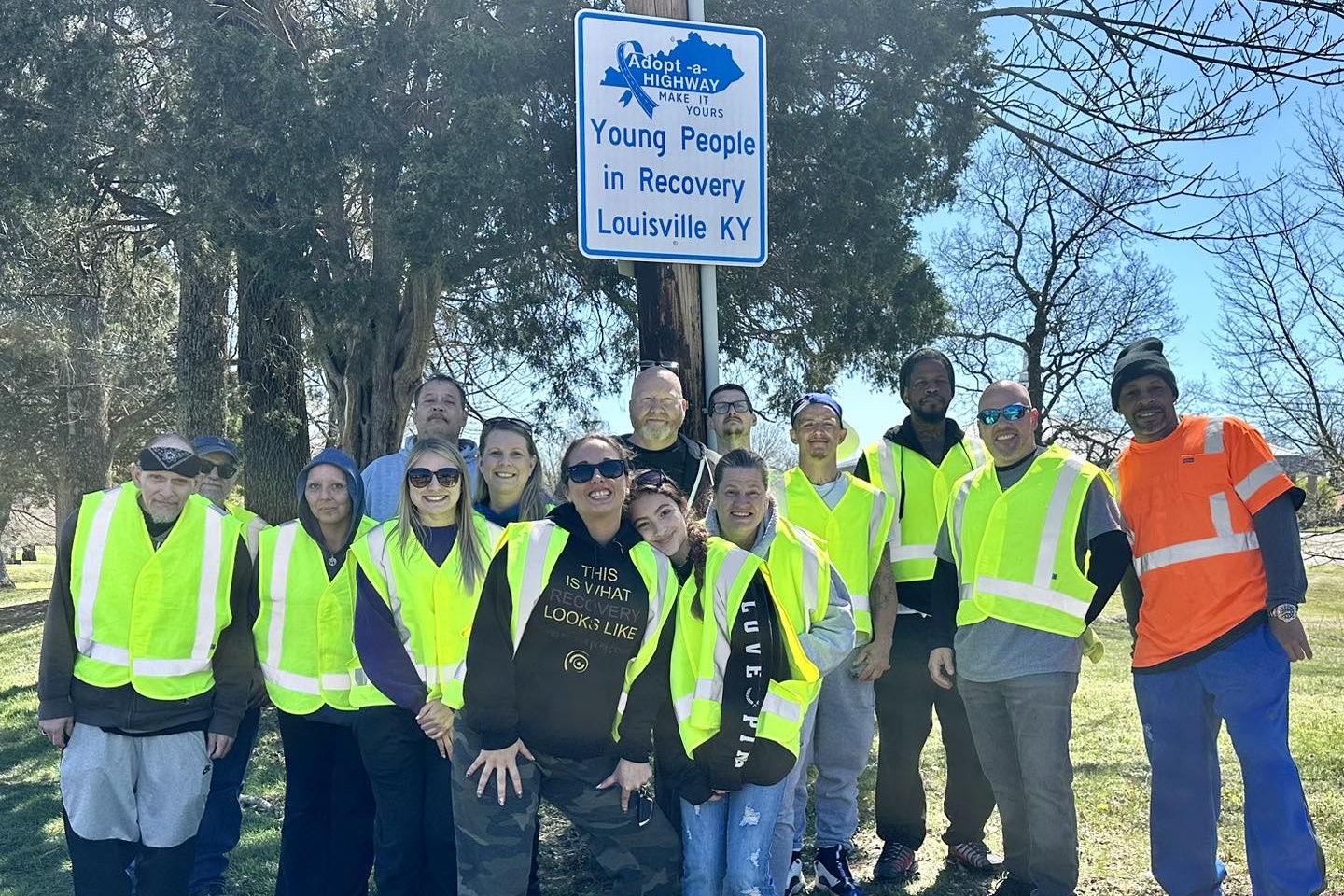
Yemi Mobolade secured a decisive victory in Tuesday's Colorado Springs mayoral election. The businessman and political newcomer handily defeated former Colorado Secretary of State Wayne Williams in a runoff.
Mobolade, a Nigerian immigrant, is the first Black man elected to lead Colorado Springs. Leon Young held the role in 1997 on an interim basis. Mobolade discussed his new role, his faith and getting ready to hit the ground running with KRCC’s Andrea Chalfin.
This interview has been edited for length and clarity.
Andrea Chalfin: Yemi Mobolade, mayor-elect, how are you feeling? Has it sunk in yet that you will be leading Colorado’s second-largest city?
Yemi Mobolade: It's sinking in more and more. I'm tired, but I'm good. And the more I wrap my head around the job, it's sinking in more and more, but I'm still in shock. Don't get me wrong.
Chalfin: Leading up to the election, we talked about a number of key issues that will help shape the city: attainable housing growth, police reform, all shaped through what you describe as the importance of leadership. Where do you start and what is your number one priority?
Mobolade: My number one priority after swearing-in is to ensure that we are all on the same page with my vision and our vision, as well as establishing a good culture within city administration. There are almost 3,000 people that work within the city administration. It's one of my top priorities to not only connect with the directors, but to ensure that I have some time with the staff members to convene them in groups and to communicate my vision, as well as my culture, because these 3,000 members would be representing me to the city. So I want to ensure that we're all working out of the same playbook.
Chalfin: The majority of City Council supported your opponent in the election. How are you planning to work with Council moving forward?
Mobolade: I welcome that challenge. I'm up to that challenge. Unity is the name of the game. Unity is what I've been preaching, promoting, and what I've been doing in this community from my time as a pastor and trying to unite diverse faith traditions to work from the same playbook; from my time even in city government, to uniting government factions to work from the same playbook; to my time working with the school districts trying to help unite 10 school districts to work from the same playbook. So I'm looking forward to putting that into action in the mayor's office.
So, yes, five of them endorsed my opponent. The other four didn't. So that's important. So we have a good starting place. I have to say, I have met with (City Council President) Randy Helms and we've both expressed strong mutual desire to work together. I'm excited about that. In fact, he's tried to call me twice already today. I'm meeting with another city council member today who actually supported my opponent. So, I'm already making strides toward ensuring that we are working together for our residents.
Chalfin: In your acceptance speech, Tuesday night, you said that Colorado Springs will become an inclusive, culturally rich, economically prosperous, safe, and vibrant city on a hill that shines brightly. Elaborate a little bit on that.
Mobolade: Each one of those aspects are an important part of quality of life. We talk about being an inclusive city. That is one of the strong messages of my campaign that the neighborhoods of our city will have a voice at the city and the decisions that impact them and including members of our community that consistently felt on the outs. Inclusive also means transitioning us from being a city for the few to a city for the many, not just special interests.
One of the marks of a great city is when you welcome diverse cultures, it actually has economic development implications, to bring in more jobs and attract more talent. And so you see growth happening even with upcoming events like Juneteenth that's coming up here soon. And Fiestas Patrias, which I was a part of last year. So, when I say culturally rich, understanding our city is growing and becoming more diverse and to welcome it and embrace it. We've talked about safety being on the top of our minds. Being economically prosperous, ensuring that people have access to jobs, higher-paying jobs you need to live in this community. And if we do all four things well, we will be vibrant.
Chalfin: So you're a political newcomer and a businessman. How do you think those qualities will serve you as mayor?
Mobolade: A political newcomer, but a seasoned city leader. I often quote Reagan around the whole concept of being able to see things with fresh eyes because those lenses have not been tainted with any commitments or to any groups or persons that I owe anything to. So I'll be able to look at the issues very objectively. I make decisions from a place of being very objective. So I'm looking forward to readdressing even some of the pain points from fresh eyes.
Being a businessman. That one is being in the arena, understanding, not just hiring and creating good culture. Also the ability to look into a budget and trim the fat and understand that we have limited resources. There are a lot more needs and a lot more wants and a lot more desires than we have money for. How can we be creative? What else can we do? How can we find solutions to the answers? So all those experiences will be helpful in the mayor's office, in addition to being able to pick up the phone and call other business leaders to be a part of the solution to the issues ahead of us.
Chalfin: You are also an independent, and the mayoral election is nonpartisan, but it is a city that is widely established as conservative and Republican. What do you think your election says about the here and now for the city or the future for the city?
Mobolade: I think, with regards to the here and now, what this election says is it brings to the conversation a group that we don't often talk about. We're quick to ask the questions, are you Republican or Democrat? But there's a group of us that no one is talking about, and we are the largest political party, the independents — 48 percent of us — the unaffiliated. So what this election says is, we matter, too. We want to be a part of the conversation. I represent that group. And not that we don't affiliate to any values, we do. We just are having second thoughts about the political party machine. I am proud to represent that group and to bring that conversation to the forefront.
And it's really important, too, that I'm also proud that I have run a campaign that is true to the intent of our own local laws and city charter that demands that the election cycle is a nonpartisan election. And no one is talking about the fact that, in 1979, our city charter was amended to say it's a nonpartisan election, and that all candidates submit a sworn affidavit to the city clerk that we have not been endorsed by any political party. No one is talking about why we haven't honored that. We've gone through the motions, but yet we're running parties in politics. Our quality of life should not be tied to just political preference and that's really important.
Chalfin: You moved to Colorado Springs to start a church, and you also served as a ministry leader at First Presbyterian Church here in Colorado Springs. Religion and the Republican Party are generally thought of as going hand in hand. How have you navigated to separate church and politics or how has that served you going into politics?
Mobolade: COSILoveYou is an organization I co-founded, and what we've successfully done is unite diverse churches together. What we've done is to serve the city, no strings attached. Faith is an inspiration to do good for me and not to promote hate. The values of kindness and empathy and humility and courage to do the right thing. That's what faith does. And that's part of my leadership and it informs how I will be leading. Not so much from looking at politics and government from a religious experience. There’s a place for that in our community. We need our faith communities, our faith sectors, from all faiths, because they connect us to a higher power.
But, the work of government is different. What we can draw from them, from faith, is the values that keep us grounded and help us to be good humans and to see each other and to restore truth, beauty, and goodness in every single person.
Chalfin: Colorado Springs is the second largest city in the state. No city, though, works only within its boundaries. What happens here also affects the rest of the state in the region. So how are you planning to work with other city and state leaders to shape Colorado?
Mobolade: I'm already doing so. Just last night, I got a text from the mayor of Grand Junction telling me congratulations. I got a text from the former mayor of Salida telling me congratulations. There's a lot to learn from other cities. In fact, I have the affordable-housing plan from the city of Grand Junction — I'm just comparing notes. I participated in a program called the Governor's Fellowship, I'm a 2019 class of governor's fellows. That program did two things: gave me access to the governor's office and his cabinet, and has also given me access to leaders from across the state who are also having similar problems and trying to find solutions to the problems that we are encountering. So I look forward to learning from others. I look forward to also sharing with them things that I've learned and working together with other leaders from across the state.
Chalfin: One big economic consideration in Colorado Springs is whether or not Space Command stays here. Can you comment on that ongoing effort?
Mobolade: Most recently, I've learned that we're making more hires. We're continuing to work as though it's here to stay. And I think there's wisdom in that. The final decision has not been made. I am proud of the many efforts that are happening from the local level to the state level and federal level.
The big benefit of this tension around Space Command is this infrastructure from across levels of government that we now have in place that we can use to address other issues. We have strong communication, we have strong collaboration, and I see an opportunity to use that to solve other issues that we will encounter. I'm talking to the current mayor about Space Command. I fully intend to fight for it to stay here and do our best but, more importantly, one of the issues that is making it harder for us to keep it here is around housing affordability. So we must address that so we don't lose other future opportunities. And that's a part of this whole Space Command crisis that keeps me up at night is housing affordability.
Chalfin: You're the first elected Black mayor of Colorado Springs and you're a naturalized U.S. citizen from Nigeria and West Africa. Does any of that have any special meeting for you?
Mobolade: I didn't wake up today thinking, oh yeah, I’m going to be the first elected Black mayor, or the first elected immigrant mayor, or whatever those criteria are. Those are important. I'm going to get back to that in a second. But, how I see myself is part of the story of the American dream, the land of opportunities — and even the reasons why many of us came to Colorado Springs, which is also land of opportunities. And, to whom much has been given, much is required. So, I've succeeded and I want to pay it forward. Now, the cool thing about my story is that I am Black. I am an immigrant. I got naturalized almost six years ago.
Those are profound. And I don't want to miss or not acknowledge the beauty and the magic of that. Not just because I get to say I am the first — those things don't matter to me. In fact, if I'm being honest, I have a pet peeve when leaders start with that: “I am the.” But, what makes that so special, is the fact that two young Black leaders in the 23-year-olds that looked at me on the election night, and said, “because someone that looks like us has become mayor, now we feel that the sky is the limit. We can do anything.”
Man, that helps me go to sleep at night and helps me get up. That's why that matters. Not because it's a badge of honor I get to wave as an identity politics thing, but it's because of what it would do for the next generation of leaders.
And as I walk to my kids' school and see all these young kids, (yell) “Yemi for mayor” and the number of kids that have been involved in politics this year at such a young age because my family's relatable, that's what makes me happy. So that's where my profile matters because my wife and I are young — relatively speaking, in our forties, running for office, which is another ceiling, if you may, in this city — but other families see us and they relate to us. They're having conversations about us in their home. They're talking to their kids about politics because the kids watch TV and they see other kids. That's, that's a sweet spot.









